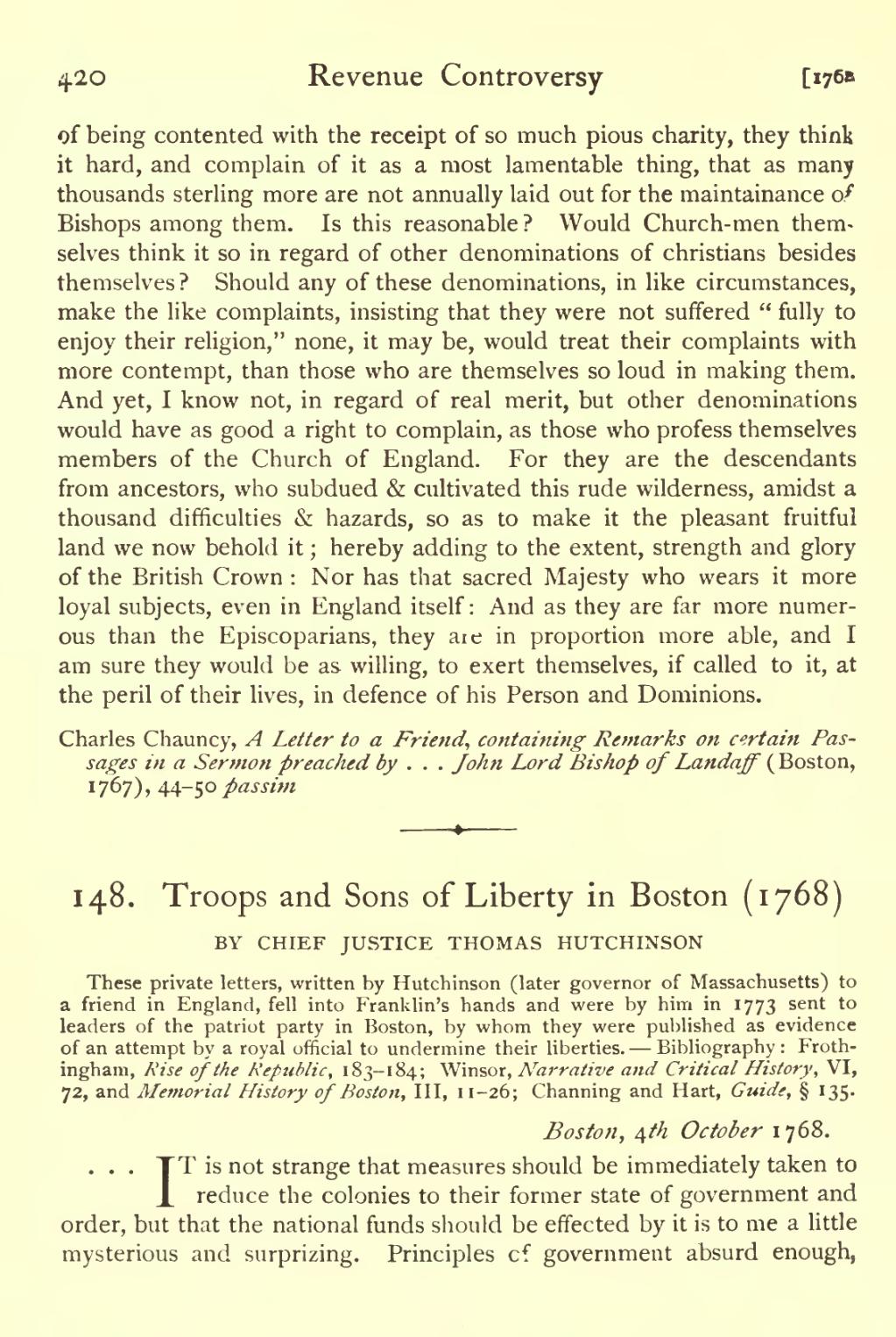of being contented with the receipt of so much pious charity, they think it hard, and complain of it as a most lamentable thing, that as many thousands sterling more are not annually laid out for the maintainance of Bishops among them. Is this reasonable? Would Church-men themselves think it so in regard of other denominations of Christians besides themselves? Should any of these denominations, in like circumstances, make the like complaints, insisting that they were not suffered "fully to enjoy their religion," none, it may be, would treat their complaints with more contempt, than those who are themselves so loud in making them. And yet, I know not, in regard of real merit, but other denominations would have as good a right to complain, as those who profess themselves members of the Church of England. For they are the descendants from ancestors, who subdued & cultivated this rude wilderness, amidst a thousand difficulties & hazards, so as to make it the pleasant fruitful land we now behold it ; hereby adding to the extent, strength and glory of the British Crown : Nor has that sacred Majesty who wears it more loyal subjects, even in England itself: And as they are far more numerous than the Episcoparians, they are in proportion more able, and I am sure they would be as willing, to exert themselves, if called to it, at the peril of their lives, in defence of his Person and Dominions.
Charles Chauncy, A Letter to a Friend, containing Remarks on certain Passages in a Sermon preached by . . . John Lord Bishop of Landaff (Boston, 1767), 44-50 passim
148. Troops and Sons of Liberty in Boston (1768)
BY CHIEF JUSTICE THOMAS HUTCHINSON
These private letters, written by Hutchinson (later governor of Massachusetts) to a friend in England, fell into Franklin s hands and were by him in 1773 sent to leaders of the patriot party in Boston, by whom they were published as evidence of an attempt by a royal official to undermine their liberties. — Bibliography: Frothingham, Rise of the Republic, 183-184; Winsor, Narrative and Critical History, VI, 72, and Memorial History of Boston, III, 11-26; Channing and Hart, Guide, § 135.
Boston, 4th October 1768.
. . . IT is not strange that measures should be immediately taken to reduce the colonies to their former state of government and order, but that the national funds should be effected by it is to me a little mysterious and surprizing. Principles of government absurd enough,
